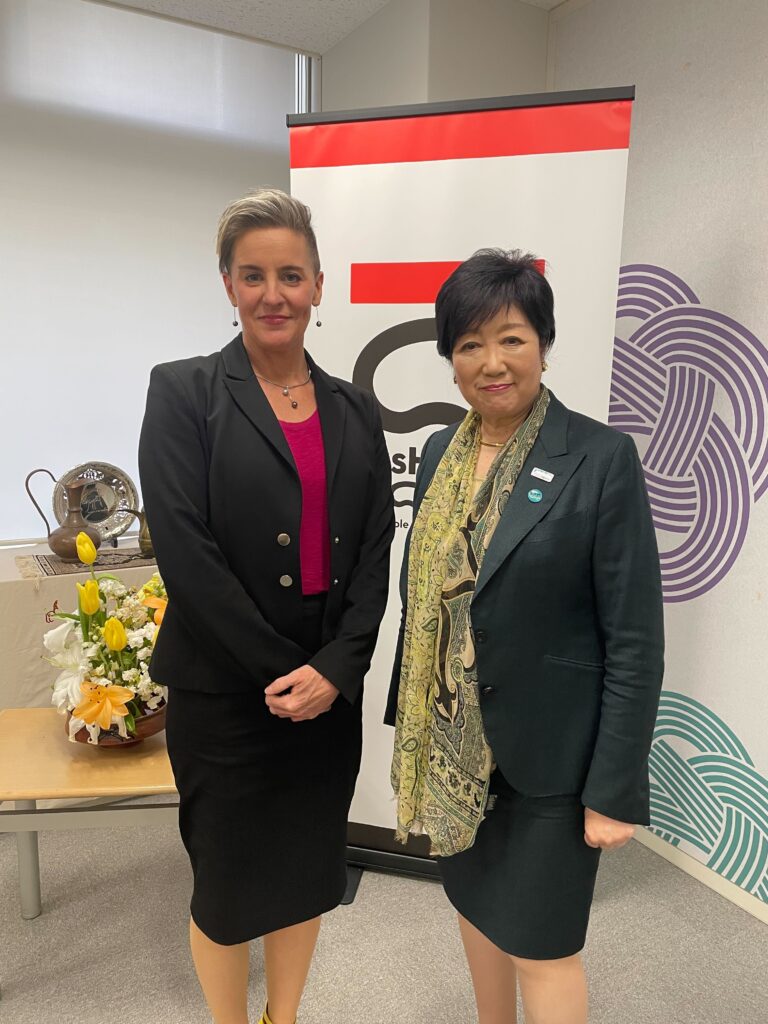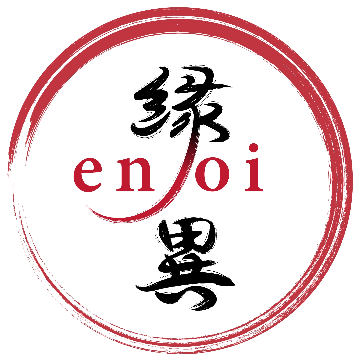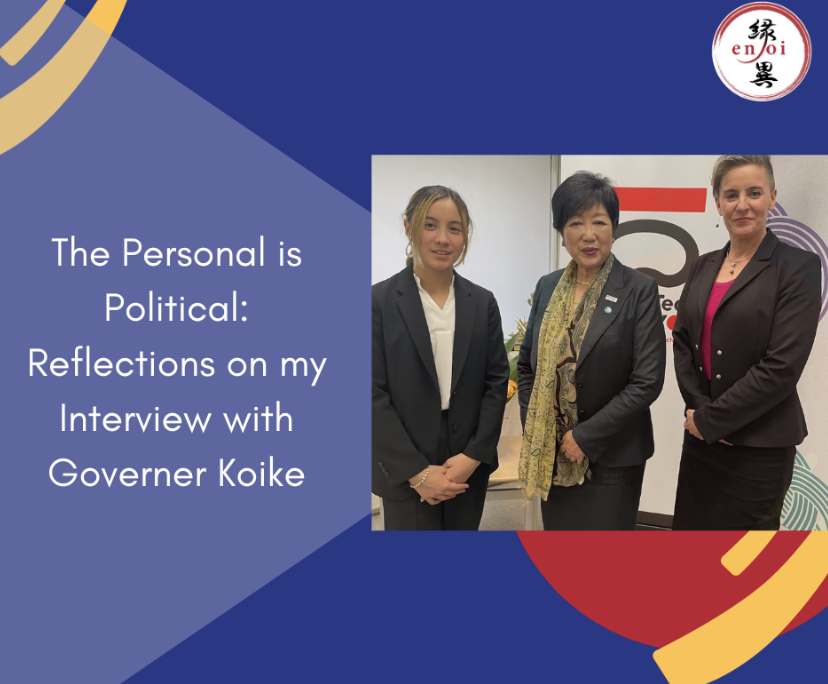In this short text, I want to explore the interconnections of a bunch of my passions, from political philosophy to feminist academic research, from the importance of democratic governance to the centrality of public policy advocacy, and from DEI practitioner lessons from the global pandemic… and back to politics and political philosophy again.

Earlier this year I was honoured to Interview Governor Koike about her vision and leadership on crisis resilience during COVID-19. This was thrilling for me. While an associate professor at the University of Tokyo, I developed a vibrant international research agenda on the intersections of diversity, democracy, and disaster risk governance, a new conceptual paradigm and research agenda that I coined as “3D Risk Governance”. While the initial focus invested in qualitative research tracking young women leaders in post-disaster Tohoku, it later led to Japan-Canada research collaboration and crisis risk governance and policy exchange supported by the Canadian and Japanese embassies in Ottawa and Tokyo. My original research informed practitioner solutions, such as the Nagareyama Multilingual Disaster Guidebook, made by a childrearing mother’s group I had the pleasure of collaborating with in Chiba.
My research on 3D Risk Governance was published by the University of Tokyo, featured in two High-Level Japan-Canada Policy Dialogues held in Ottawa and Tokyo, and it was further used to guide content proposals for national and international policy advocacy organizations such as the Japanese Women’s Network for DRR led by the inspiring former Governor of Chiba, Domoto Akiko. Her network lobbied strategically to ensure that the new UNISDR-led international agreement (Sendai Framework for DRR 2015-2030) effectively spoke not only of “gender”, but rather, brought forward a lens on gender and diversity in disaster risk governance. We did not win recognition of intersectional diversity, but it was at the startline for changing the baseline assumptions so that member-states would start understanding the need to collect better gender and diversity-disaggregated data to effectively serve the diversity of their populations in pre and post-disaster contexts.
Much of this comparative policy research has led to important implications for how we understand not only natural disasters or climate crises, but also human-made crises, and global health disasters. Disasters do not happen in a void. They are not contained to one part of society. Foreseen or not, disasters and crises require democratic governance and ethical distribution and sharing of the risks and burdens or they further exacerbate inequalities and the cracked foundations in our societies. It is imperative that all stakeholders take disaster risk governance seriously and bring an equity lens to the table. This means integrating reliable data analytics based on an intersectional diversity lens to guide governments, corporations, and societies, in an evidence-based way, to more effectively and democratically govern, mitigate, reduce, and equitably distribute the burdens of risks. The impact of the global pandemic cannot be arbitrarily left to be solved by the market. We require sustainable, ethical, and evidence-based policies and practices of togetherness grounded upon a holistic ecosystem approach to human thriving.
My political philosophy and public policy research and publications (in English and Japanese) set the stage for enjoi’s 2017-2020 research for UNESCO on the impacts of aging on women in Japan, and then the impacts of COVID-19 on diverse women in Japan. We were thrilled to share that original research and SME lens with key Canadian government counterparts leading the Canadian Embassy’s diplomatic policy network focussed on gender, LGTBTQ, and human rights. They sought to guide their senior diplomats on the potential impacts of the Japanese government’s emerging policies in the early period (2020-2021) of the pandemic. To support the market more broadly, enjoi later published a follow-up practitioner Report (2022) on the impacts of failing to govern crisis risk with an equity lens, and the importance of intersectional thinking to the mitigation of the impacts of COVID-19 on diverse women in Japan with evidence-based policy-making supported by intersectional data analytics.
Fast forward to this unique interview opportunity in April 2023 with Governor Koike, and it was such a pleasure to hear her vision and commitment to integrating the diverse population of Tokyo in her disaster response policies and initiatives. She began by centering her responsibility to save lives and protect the health of the city, beginning with the lives of the elderly population, which meant an outreach to ensure the vaccinations reached nursing homes and retirement homes for those facing reduced mobility. She reflected on her time as Minister of Environment and how she collaborated with others to start a movement to ensure the creation of liquid milk preserves to ensure an adequate domestic supply chain would be available to support parents and their babies in post-disaster contexts. Bringing a gender equity lens to the analysis, she also noted that it has been a key to empowering fathers to participate in babies’ caregiving, so these supports are ready in crisis times and regular times.
When I asked her what motivated her to make the bold decision to personally go on TV to make bilingual announcements with the updates on the pandemic. No national politician or other leader in Japan has ever taken such a conscious step to demonstrate political accountability to the population they serve. No senior Japanese political leader has ever shown such clear awareness of the vast numbers of residents in Tokyo (580,000 non-Japanese residents, she reminded me) who do not find benefit nor increased household security from Japanese-only official broadcasts in times of crisis.
Further articulating the implicit diversity lens that is clearly working in the backdrop of her vision and policy-making decisions, Governor Koike astutely commented to me that “viruses do not have maps, they do not have watches.. Infectious diseases do not choose who they infect.” To be clear, her very real concern and evidence-based concern was that the virus would not respect borders or jurisdiction lines, nor would official Japanese announcements likely reach more than the staff at the embassies, but it would not reach their drivers, or the foreign national communities quickly enough to anticipate the impacts of local cultural festivals.
Indeed, crises do not discriminate based on gender or nationality or sexual identity, so perhaps aside from the vulnerability of age and immune system, so Governor’s singular focus in the early days was to “provide information and to communicate with words that would get the message across.” This ensured that the information about masking, and washing and disinfecting hands could be integrated as quickly as possible into the local festivals still unfolding prior to the lockdown. Not satisfied with just information updates in Japanese and English, the Tokyo Metropolitan government went on to expand the televised reporting to 12 different languages.
Finally, as a feminist political scientist who has worked on law reform and policy advocacy to foster a women-positive, caregiving-friendly, and queer-positive socio-political ecosystem in Canada and Japan, I was personally most profoundly impressed by how the Governor’s whole staff welcomed my 12-year-old daughter, and in the most natural of ways. I explained that we were heading from Nagano to Tokyo and on to Vancouver and that my daughter would accompany me and would require a security pass to enter. I received not even an inkling of pushback. In all our rush to prepare to head to Canada, I had not been able to arrange for a friend to be with her during the daytime working hours of our scheduled interview. The 10+ staff from the Governor’s office who greeted us simply welcomed us both and invited us to the waiting room for introductions, business card exchanges, and pleasant conversation. They suggested that I may prefer to have my daughter stay with me and join me in the room with the Governor to observe the interview, rather than wait in a separate room. In all of my 20 years of interviewing Japanese (and Canadian) parliamentarians, I have never been met with such a parent-positive, child-friendly and welcoming group of political and government staffers.
There was no teeth-sucking or consternation, no frazzled looks from her team, or guilt-tripping about my imposing upon them, there were no perplexed faces feeling “put out” with having to deal with an “appendage/child” during a professionally requested interview. They did not make me feel like I was being unprofessional by assuming the right to bring her with me that day. They all simply hospitably and professionally welcomed us both, and they even invited Sena to simply sit behind her mother during the interview to bring her into a joyous moment of witnessing women’s leadership in action.

I return to this saying all the time, but it is true: “Intersectional inclusion and equity is a daily practice.” It is in how we show up for others in those rare moments when there is no script, no guidance from others, no policy to consult, and when can comfortably lead with empathy and offer a genuine generosity of spirit to hold space and be welcoming and supportive of all diverse families and all diverse folks, in all ages and stages, and from all diverse walks of life. Praise be for the leadership of Governor Koike and her team. If I had the right to vote, she would have mine in spades!
For more information about the importance of political philosophy, evidence-based policy-making and leadership action to achieve sustainability, innovation, and the co-creation of an equitable society, check out this next book spearheaded by my enjoi thought partner and inspiring mentor, Rika Nakazawa. This wonderful interview with Governor Koike will be featured among the list of pioneering global leaders in sustainability created in this exciting book project.

